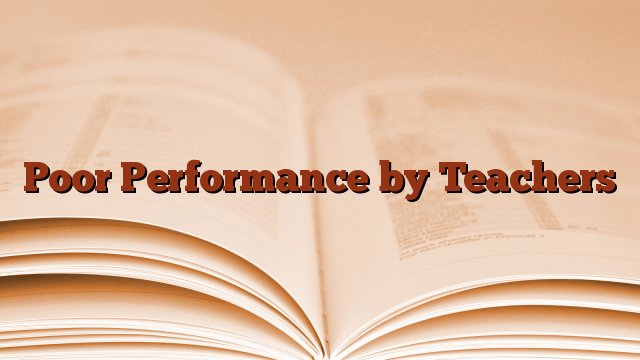Nowadays we hear a lot about the sad conditions in our public education system. There is a clamor for a weeding out of the bad apples in the faculty ranks. The question arises as to what the balancing act is all about. There is a difference between incompetence and poor performance.
It seems to me that the incompetence would show up within the first three years of teaching experience. Poor performance can develop later in a teacher’s career. Both terms require explicit clarification. Who is responsible for determining the competence, or lack thereof, or performance of a teacher or administrator or board of education? Legal problems abound.
Although I have written several articles on the nature of supervision in the school environment, I have not gone into the specifics of evaluation. First of all, teacher evaluation must be more than a mere checklist of do’s and don’ts. Things like the following, while having their place in a teacher’s overall assessment, are not the most important: Can the students hear the teacher well? The teacher speaks clearly. Does the teacher stand or remain seated during the lesson? Are the bulletin boards attractive? Do bulletin boards reflect lessons?
As a former head of an English department with fourteen teachers, I visited each teacher every semester. These are some of the things I was looking for: Is the teacher making good eye contact with the students? Does the teacher use her or his voice to engage the students? Does the teacher address the students by name? Does the teacher’s use of student names reflect an attitude towards the student(s)? Does the teacher use encouraging language and tone? Do the teacher’s questions reflect the answer he or she wants? Does the teacher show a general feeling of warmth towards the students? Does the teacher show lesson preparation? There are a few other criteria that go into the evaluation. One thing is enough to illustrate the point: does the teacher greet his students as they enter the classroom?
After the official observation, I met with the teacher, discussed my observation and provided an opportunity for teacher feedback. This is critical to maintaining an effective employee relationship and development. Teachers should receive copies of the written assessment. You should give the teacher space to give a formal answer. Open communication raises the bar for excellence.
Norman W. Wilson, PhD
Thanks to Norman W. Wilson, Ph.D | #Poor #Performance #Teachers

Leave a Reply